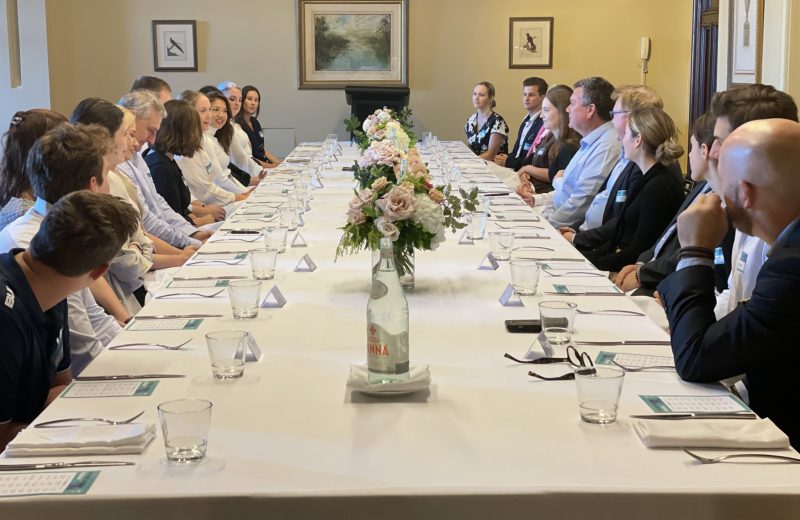Last week the National Retail Association hosted the first of a series of Future Leaders Forums, an event aimed at gathering young retailers and leaders of the retail industry for mentoring and a meal. The keynote speaker of this event was Alice Barbery, CEO of Universal Store. Over the breakfast, Alice discussed how Universal Store has grown nationally to a whopping 72 stores, and what leadership means in 2022.
Leadership in 2020 is very different to leadership in 1990 and our leadership styles have to grow and evolve to reflect these changes. Alice’s keynote was a timely reminder that developing the leaders of tomorrow means investing in our people.
It is important for workplaces to achieve gender equality, not only because it is fair, but because it is the right thing to do. It’s also vitally important to the bottom line of business, and the productivity of the nation. It is important to educate our young women, especially since they make up 60% of the retail workforce. The retail sector also employs the highest number of youth in the country.
Here’s why supporting more women in leadership roles is important to Australian retail.
- Gender equality attracts top talent. Those companies that are performing the best are those with robust and equitable workforce policies and practices. These companies are also ones that recognise the value of gender equality in the workplace and attract high-performers who want to be part of a healthy and prosperous workplace culture.
- Gender equality can reduce expenses. Replacing departing employees can cost 75% or more of an employee’s actual wage.
- Companies with gender equality perform better. Businesses are likely to be more profitable if they have different perspectives operating at the helm. These diverse perspectives bring opportunity and new possibilities. We want to encourage different ideas because different ideas bring about more productivity.
- Gender equality improves national productivity and competitiveness. The world economic forum has found a strong correlation between countries of competitiveness and how they educate and use their female talent. It says empowering women means more efficient use of the nation’s human talent endowment and reducing gender inequality enhances productivity and economic growth. Over time, therefore, a nation’s competitiveness depends, amongst other things, on how it educates and utilises female talent.
- Gender inequality wastes resources. Australia is not only missing out on the important contribution women make to the economy but we are also wasting years of investment in the higher education funding for women. Around 58% of Australian University graduates are women, and only 67% of working-age women are currently in paid work, compared to 78% of men. So we educate our women, we give them skills, they achieve highly, are recognised and have respectable levels of education and they are able to perform these high-level jobs, however along the way we are losing them. They are falling out of the workforce. There may be several reasons for this, however, we have an obligation to assist these women and put strategies in place to retain their talent.
Promoting women in leadership
We need to encourage natural progression and general flexibility in order to get women into leadership but also keep in place substantial leadership programs. These programs need to be targeted and ongoing. It can be hard to keep staff involved but it really comes down to engagement, making it part of their KPI’s or putting it in their job description. The National Retail Association has also developed a Womens’ Leadership Program to support upcoming leaders. The four half-day workshops cover topics including effective communication, people management, leading and inspiring a team. Join the NRA Retail Institute for the first online workshop on Tuesday, 26 April. Book your ticket for this unmissable workshop here.


